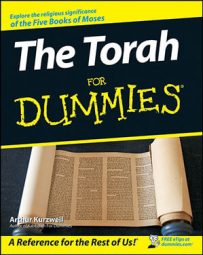Adam and Eve's first two children were Cain and Abel. The Torah says that "Abel became a shepherd and Cain became a tiller of the ground" (Genesis 4:2). When it came time for each of them to present an offering to God, Cain offered fruit from the ground, and Abel offered the firstborn of his flocks. Then the Torah offers a mysterious line: "God turned to Abel and to his offering, but to Cain and his offering He did not turn" (Genesis 4:4–5).
God told Cain, who was disappointed in God's rebuff, that he needed to improve himself. Cain then confronted Abel and murdered him. When God asked Cain where his brother was, Cain spoke one of the most well-known lines in the Torah, "Am I my brother's keeper?"
Cain and Abel are the first human beings to be born of human parents, and they're the first pair of siblings, the first brothers. They're also involved in the first murder. (That's a lot of firsts!) But there's great spiritual significance in the very first fully human episode in the Torah. The Torah teaches that the greatest human pleasure is nearness to God, and the proper perspective on life has God at the center. Viewed in this light, there's a vast difference between the symbolic offering of Cain with his rather lowly "fruit from the ground" and Abel's offering of "firstborn of his flocks." Torah commentators also explain that the occupation of shepherd symbolically represents a profession that allows for contemplation of God, whereas a tiller of land often becomes a worshipper of the earth and not God.

